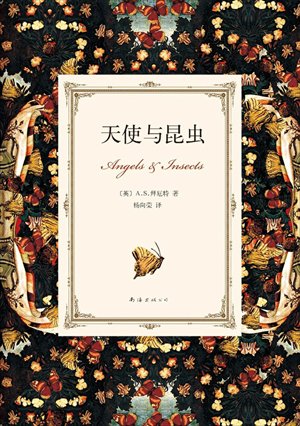Turning the page

Over the past century, Britain has contributed some of the most influential female writers in the world of literature including J.K. Rowling and Agatha Christie. Yet apart from these authors' stories based on the adventures of boy wizard Harry Potter series and Belgian detective Hercule Poirot, many more British female writers stand out including A.S. Byatt.
Chinese readers welcomed the 76-year-old Booker Prize winner to Beijing on Sunday as she gave a lecture at the National Library. The event was organized by publisher Thinkingdom Media to celebrate the publication of the Chinese editions of Angels & Insects (1992) as well as Possession (1990). Her visit to Beijing also coincided with the UK Now British Arts and Creative Industries Festival hosted by the British Council.
A.S. Byatt, also known as Dame Antonia Susan Duffy, is regarded among the greatest living female British writers. Over her illustrious writing career that began in the early-1960s, the Sheffield-born scribe has seen great strides made in gender equality within literature.
"There was a period in British writing when [women] were bounded by their gender. During that time, American, British and French feminists saw women as being treated badly," she said. "But there have always been as many good women writers in Britain as now."
Byatt herself admitted she had been inspired by some of Britain's leading women writers in the pre-feminist era. "Just before the 1970s, the situation was better. There was Iris Murdoch (1919-99), Muriel Spark (1918-2006) and Doris Lessing (1919-). If you were talking about British literature, you were talking about women," she said. "Women started writing books for women, about women. But I'm a writer who believes I can write about men, or even for men, as well as women."
Byatt conceded she is far from being in a position to judge Chinese literature, even though she has been introduced to the works of some writers. One Chinese writer who influenced her writing, especially her short stories, was Shen Congwen (1902-88). She was encouraged to read his books during a visit in 1988 to Nanjing, Jiangsu Province.
"I was asked to talk about short stories, which I hadn't read nor had I written any. So I was humiliated," she recalled. "I felt I'd lost face, so I asked which Chinese short story writer should I read and the answer was Shen Congwen. I read lots of Shen's stories and started writing my own short stories."
Shen, a writer from the May Fourth Movement, inspired Byatt's interest in short stories and inspired her to pen several works including Sugar and Other Stories (1992) and The Djinn in the Nightingale's Eye (1998).
Byatt recalled how when she was at the School of Oriental and African Studies in London, a Chinese woman came up to her and told her: "I have read The Dried Witch [from Sugar and Other Stories]. It's a Chinese story!" It was a compliment Byatt said "pleased" her immensely.
"In Chinese literature, I find that there is a relation between individuals and the group. All the books I have read have a strong individual at the center," she noted. "It's interesting and I need to write an essay about it. It's unlike European [literature], and I feel it's a Chinese shape that I need to understand."
Possession is arguably Byatt's most influential book, as Time Magazine included the novel in its list of 100 Best English-language Novels from 1923 to 2005. The book won her the Booker Prize in 1990 and resonated with readers for fusing love, tragedy, mystery and philosophy in its story.
One of the highlights of Possession is Byatt's creation of pseudo-Victorian era (1837-1901) poetry, even though it was a move that ran afoul with publishers.
"English publishers refused to publish it and tried to cut all the poems out. Every morning I woke in tears," she said.
"Fourteen American publishers refused the book and wanted to cut the Victorian language. Now, there are theses written about the poetry all over the world. I can't tell how happy I was with the outcome."